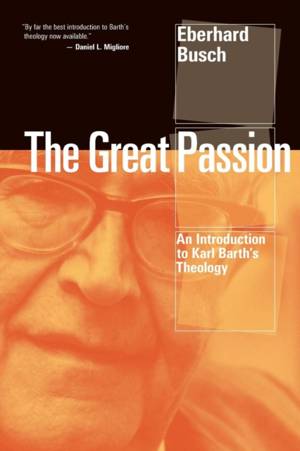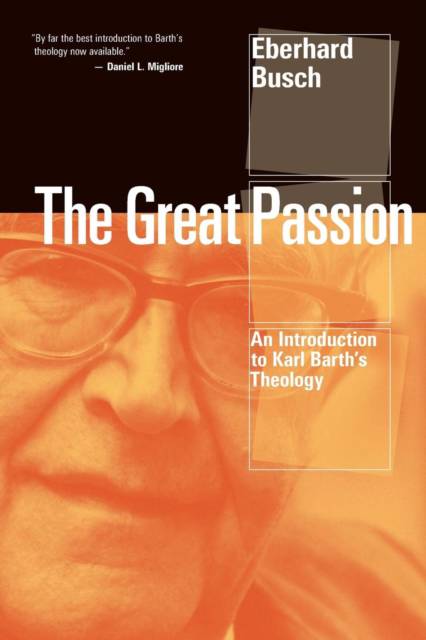
- Retrait gratuit dans votre magasin Club
- 7.000.000 titres dans notre catalogue
- Payer en toute sécurité
- Toujours un magasin près de chez vous
- Retrait gratuit dans votre magasin Club
- 7.000.0000 titres dans notre catalogue
- Payer en toute sécurité
- Toujours un magasin près de chez vous
49,45 €
+ 98 points
Description
Widely regarded as the twentieth century's greatest theologian, Karth Barth refocused the task of Christian theology and demonstrated its relevance to every domain of human life, from the spiritual to the social to the political. It is precisely the broad sweep of Barth's theology that makes a book like The Great Passion of such great value -- a succinct yet comprehensive introduction to Barth's entire theological program. Of the many people who write on the life and thought of Karl Barth, Eberhard Busch is uniquely placed. A world-renowned expert on Barth's theology, he also served as Barth's personal assistant from 1965 to 1968. As Busch explains, one cannot fully understand Barth the theologian apart from understanding Barth the man. In this book he weaves doctrine and biography into a superb presentation of Barth's complete work. Busch's purpose in this introduction is to guide readers through the main themes of the multivolume Church Dogmatics against the horizon of our own times and problems. In ten sections Busch clearly explains Barth's views on all of the major subject areas of systematic theology: the nature of revelation, Israel and Christology, the Trinity and the doctrine of predestination, the "problem" of religion, gospel and law, creation, salvation, the Holy Spirit, ecclesiology, and eschatology. A distinctive feature of the book is the way Busch lets Barth speak for himself, often through surprising quotations and paraphrases. Busch also shows how Barth's writing should be read as a dialogue, constantly and consciously engaging other voices past and present, both inside and outside the church. Most important, The Great Passion demonstrates that Barth's thought is still remarkably helpful today.
Spécifications
Parties prenantes
- Auteur(s) :
- Traducteur(s):
- Editeur:
Contenu
- Nombre de pages :
- 312
- Langue:
- Anglais
Caractéristiques
- EAN:
- 9780802866547
- Date de parution :
- 04-10-10
- Format:
- Livre broché
- Format numérique:
- Trade paperback (VS)
- Dimensions :
- 152 mm x 232 mm
- Poids :
- 439 g

Les avis
Nous publions uniquement les avis qui respectent les conditions requises. Consultez nos conditions pour les avis.






